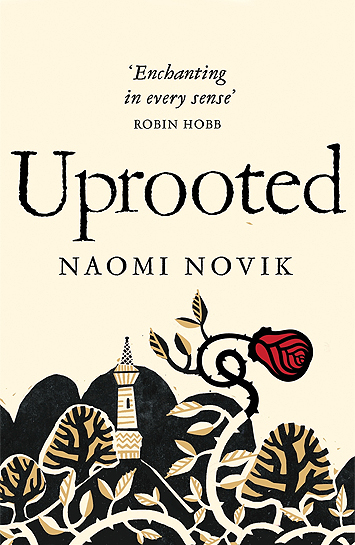
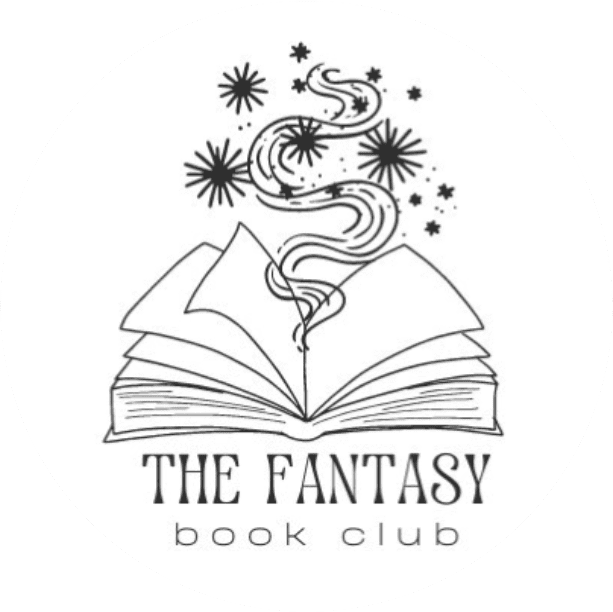 2024
Articles
2024
Articles

“We're meant to go. We're not meant to stay forever.” ― Naomi Novik
Agnieszka is at peace in her village. However, lurking nearby is an enchanted forest home to an ageless wizard known only as The Dragon. Her village depends on his protection but it comes at a price. A young woman in the village is sacrificed to the wizard and has to serve him for 10 years. Agnieszka has no idea that she is next.
In Uprooted, character development is intricately tied to the magic system and
evolving relationships. The protagonist's journey with the enigmatic Dragon
highlights subtle yet profound changes in their personalities. While they
remain true to their core selves, their interactions smooth rough edges,
especially as the Dragon begins to show regret—something he would not have
done before meeting Nieshka.
Their magic mirrors their personalities: hers is intuitive and flowing, while his is
rigid and structured. This contrast not only defines them but also draws them closer.
The Dragon's initial resentment of her success—rooted in his rigid beliefs—adds
complexity to their relationship, moving beyond mere attraction.
Ultimately, their development is about learning to work together,
embracing their differences, and building something new from their
individual strengths.
The theme of corruption is central, symbolised by the encroaching wood that threatens to
consume everything. This malevolent force mirrors the political and social decay within
the kingdom, where power and revenge drive destructive cycles. The protagonist sees this
clearly when she realises, “Marek would blame Rosya again... the Wood would devour him,
too, and leave the country torn apart.”
Corruption also manifests on a personal level as characters struggle with their darker
impulses. The Dragon conceals his vulnerabilities, while Nieshka fears the consequences
of her mistakes. The idea that "sometimes you can't see corruption" permeates the story,
highlighting how deeply it can take root before being recognised.
Ultimately, the book suggests that while corruption is widespread, it can be resisted.
The purification of Kasia and characters' fight against the wood offers hope, though
it also acknowledges the heavy cost of pushing back against such a deeply ingrained
force.
I loved the vivid imagery throughout Uprooted, which brought the world and its magic to
life in a way that felt both enchanting and tangible. The descriptions were beautifully
crafted, whether it was the protagonist's magic flowing like a stream or the haunting
presence of the wood creeping into every aspect of the story. These moments of detailed,
poetic imagery made the setting feel alive and added depth to the narrative.
However, I was disappointed by the lack of exploration into the characters'
feelings and thought processes, especially regarding the love story. Since the
book was written in the first person, it felt like a missed opportunity to delve
deeper into the emotional landscape of the protagonist. The love seemed to appear
without much reflection, which left the romance feeling underdeveloped.
I would have liked to see more introspection and emotional connection, given the
potential the story had to explore these aspects more fully.
Uprooted is a great pick for lovers of richly imagined fantasy worlds and those who appreciate detailed imagery. If you enjoy stories where magic and danger intertwine with a touch of romance and you're drawn to tales of dark forces threatening to overtake everything, this book will captivate you. Fans of character-driven adventures with a strong sense of place will find much to enjoy in this enchanting and suspenseful story.
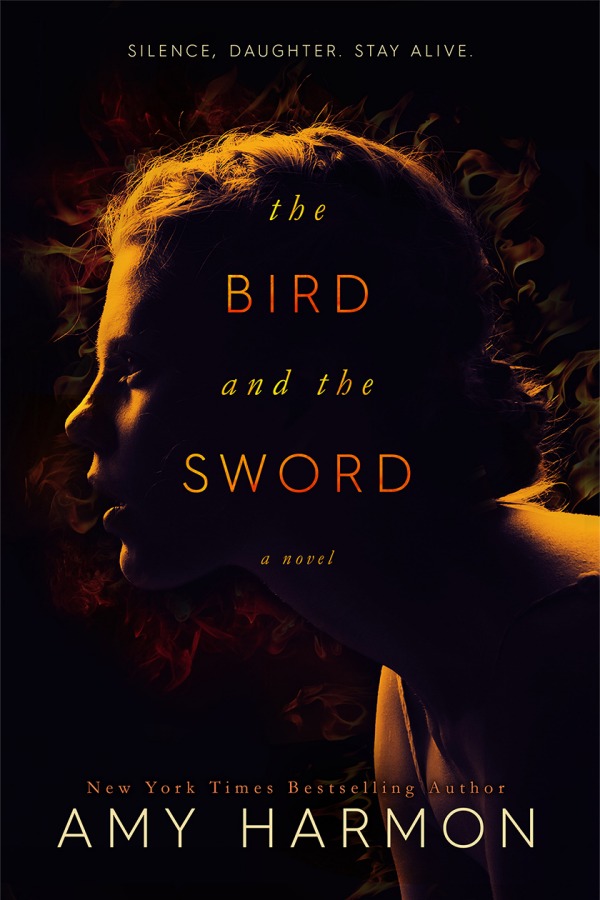
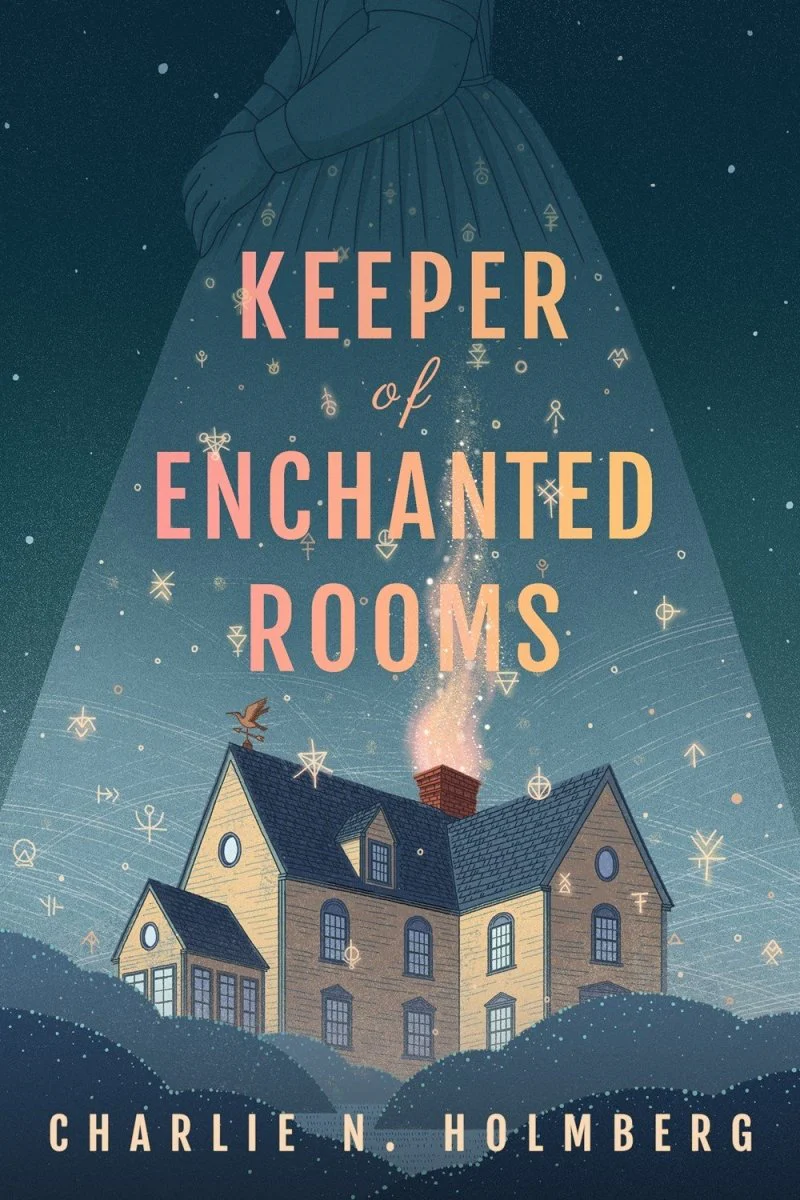
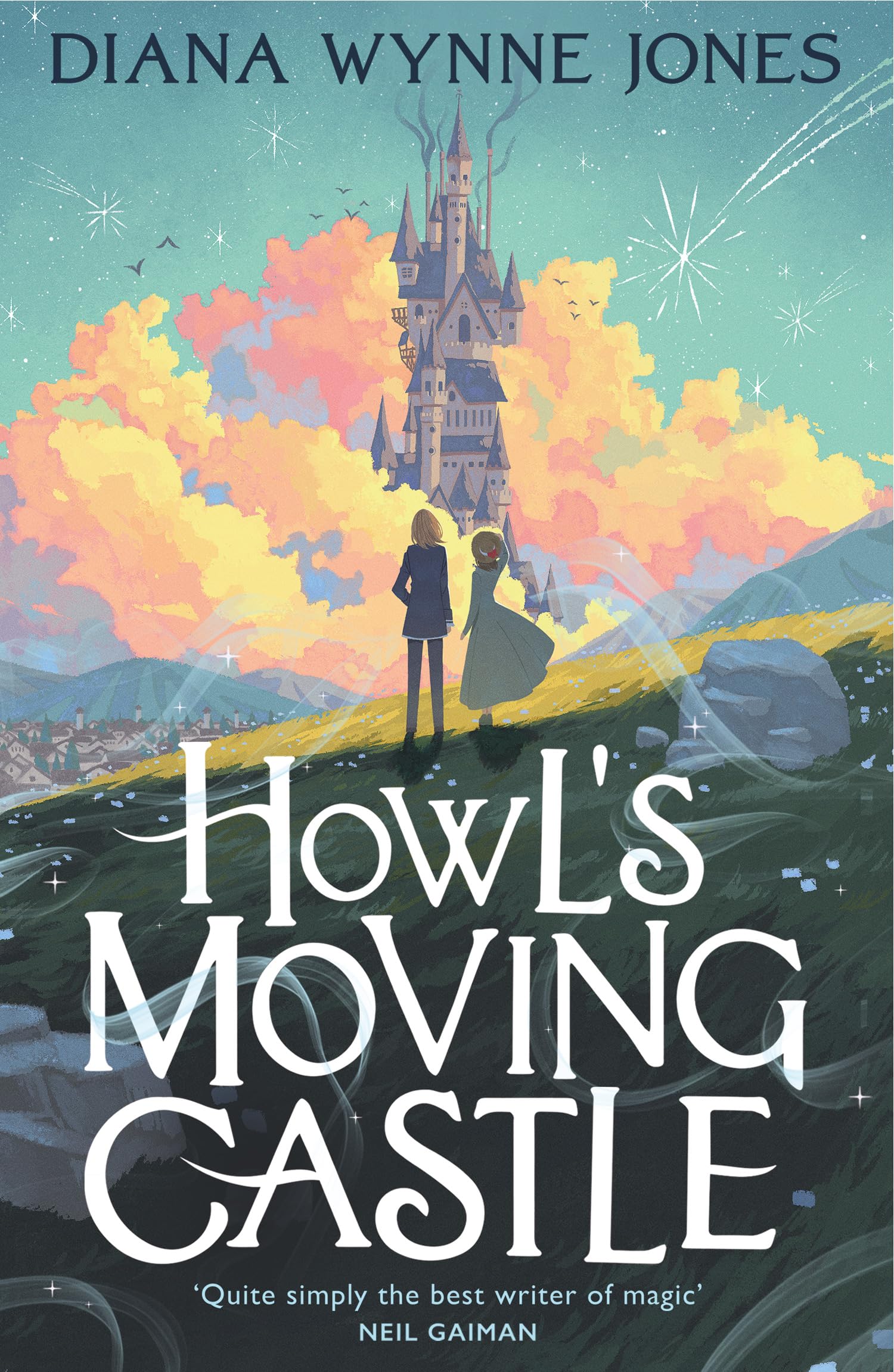
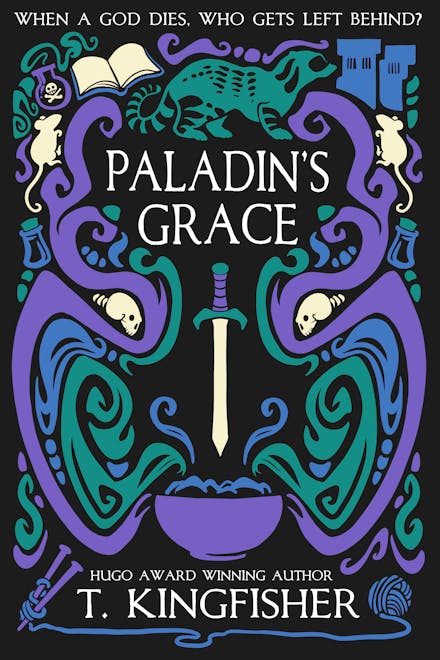
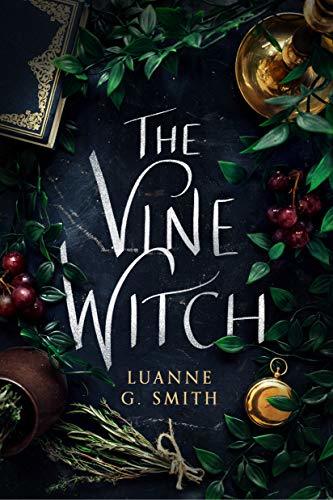
The Bird and the Sword by Amy Harmon
Design by Hang Le
Image from Goodreads
Keeper of Enchanted Rooms by Charlie N. Holmberg
Image from The Little Lost Bookshop
Howl's Moving Castle by Diana Wynne Jones
Art by Josee Shimazaki
Image from Goodreads
Paladin's Grace by T. Kingfisher
Image from Hachette Australia.
The Vine Witch by Luanne G. Smith.
Art by Micaela Alcaino
Image from Goodreads.